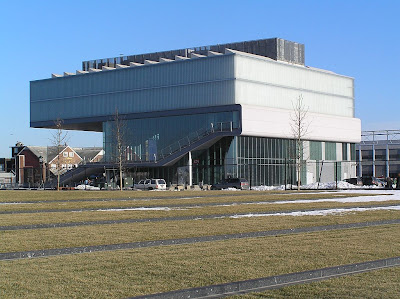http://nextbigfuture.com/2010/12/interview-of-gene-sequencing-expert.html
One of the best, most succinct descriptions of whats in store as we utilize gene sequencing for research (that I've found.). Money quote:
"The grand design is to read, write, program DNA. The better and faster and cheaper you do that, the sooner we’ll hack biology and be free from disease. Billions of individual human genomes, and billions of genomes of domesticated animals, is only the beginning. The amount of genomic information on this planet that might help us hack biology is orders of magnitude vaster than that. You have quadrillions of unique genomes in your body, counting the metagenome of all your individual genomically different cells and the metagenome of all the stuff living in and on you. Someone will probably want to sequence every tree in a forest, or every leaf on a tree, or every bacterium in a speck of seawater. Someone will definitely sequence every ear of corn in a cornfield. We’ll probably sequence all the charismatic megafauna we can find on the planet, and all the trillions of less glamorous animals as well. But even that is only the beginning. People will do forward genetics studies where they sequence trillions of individual cells or model organisms. And there may be just as much or more sequencing of artificial genomes or genetic constructs in the course of solving synthetic biology- the writing and programming part of the grand design. Tangentially, synthetic biology might be the least insanely difficult way to robust nanotechnology, making anything you want from spoons to space elevators, just like your cells build things with atomic precision all the time, using a billion year old programming language that we aim to completely understand. And so sequencing might turn out to be upstream of a lot more than merely freeing humanity from all disease."Extremely exciting.
Thanks to Next Big Future and TechCrunch TV.













.jpg)













